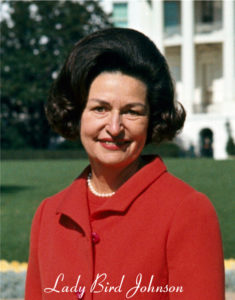 A Lady Bird Deed is a unique form of life estate which gives a life tenant the right to sell, lease, mortgage or otherwise dispose of the property and retain the proceeds without the consent of the beneficiaries.
A Lady Bird Deed is a unique form of life estate which gives a life tenant the right to sell, lease, mortgage or otherwise dispose of the property and retain the proceeds without the consent of the beneficiaries.
The deed was created by a Florida lawyer who, according to Texas Tech law professor Gerry Beyer, used the names of President Lyndon Johnson’s family to illustrate how the deed worked. In Texas, the name stuck.
The instrument is also recognized in Florida, Michigan and West Virginia, but in those states, it is referred to as an Enhanced Life Estate. The “enhancement” is that the life tenant has the same rights to use the property as if she owned it outright.
In a typical creation of a Life Estate, a husband may provide in his will that his property pass to his wife as a life tenant and to his children as the beneficiaries (also known as remainderman). This enables the wife to own the property during her lifetime and enjoy the benefits of the property and, upon her death, the property automatically passes to the children.
This typical Life Estate, however, restricts the rights of the life tenant from discarding (including selling, mortgage or leasing) the property without the express consent of the ultimate owners, the remainderman.
So, if a husband wanted to leave his property to his wife during her life but also wanted her to be able to sell it and keep the proceeds, a typical life estate would not work.
The Lady Bird Deed
Since the Lady Bird Deed was created by lawyers, there is no statutory form.
A Lady Bird Deed typically has some language that creates a life tenancy but has additional language that includes the right of the life tenant to sell the property and keep the proceeds.
EXAMPLE: Grantor does transfer and convey the following described property to the Grantee effective on the Grantor’s death: (Legal Description)
The Grantor reserves a life estate for the Grantor during the Grantor’s lifetime coupled with an unrestricted power to convey during the Grantor’s lifetime, which includes the power to sell, gift, mortgage, lease and otherwise dispose of the property, and to retain the proceeds from the conveyance.
According to one source, “Those who practice in the area of Elder Law typically use Lady Bird Deeds for single applicants for Medicaid planning with both homestead and non-homestead property. The Department of Children & Families does not consider the creation of a Lady Bird Deed as a transfer of assets.”
The advantages of a Lady Bird Deed are that it allows a mineral owner to:
- Avoid Probate
- Keep the right to use and profit from the property during their lifetime
- Keep the right to sell the property at any time
- Avoid making a gift that might be subject to federal gift tax
- Avoid jeopardizing eligibility for Medicaid
- In some states, prevent the property from being sold, after death, to repay the cost of Medicaid benefits received
How does this affect Oil & Gas Industry Professionals?
In conclusion, the Lady Bird Deed is a new form of life estate which may impact the typical requirement to have an oil and gas lease signed by both the beneficiaries and life tenant.
Under the Lady Bird Deed, the life tenant would have the right to execute an oil and gas lease without the consent of the beneficiaries and retain the bonus, delay rental, royalty and any other payments associated with the lease during their lifetime.
